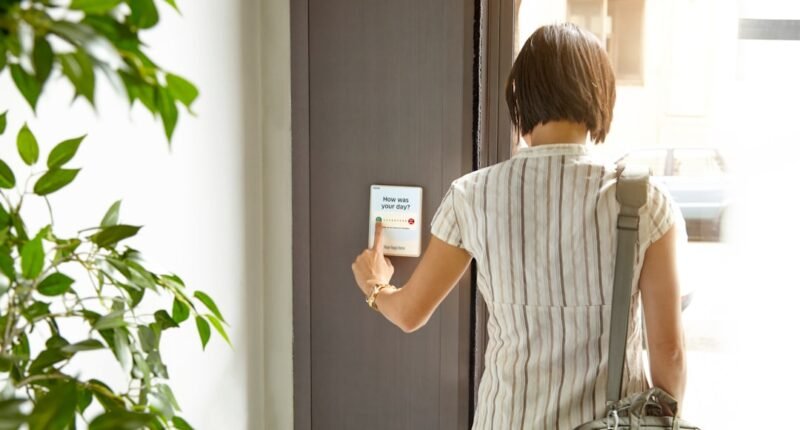Beta testing is a crucial phase in the development of a product or service, especially for startups. It involves releasing a beta version of the product to a select group of users, known as beta testers, who provide feedback on its functionality, usability, and overall user experience. This feedback is invaluable for startups as it helps them identify and fix any issues or bugs before the product is launched to the wider market.
In this blog post, we will explore the importance of beta testing for startups and how leveraging influencers as beta testers can enhance the effectiveness of these programs. We will discuss the benefits of early user feedback, the role of influencers in beta testing, and provide practical tips on finding and engaging influencers for your beta testing program. Additionally, we will delve into best practices for outreach, crafting effective feedback surveys, and analyzing and implementing influencer feedback.
Key Takeaways
- Beta testing programs are essential for startups to gather early user feedback.
- Early user feedback helps startups identify and fix issues before launching their product.
- Influencers can be leveraged as beta testers to provide valuable feedback and promote the product.
- Benefits of using influencers in beta testing programs include increased reach and credibility.
- Finding and reaching out to influencers requires research and effective outreach strategies.
The Importance of Early User Feedback in Beta Testing
Early user feedback is crucial in the beta testing phase as it allows startups to gather insights and make improvements to their product before it is launched to the wider market. By involving users early on in the development process, startups can identify any issues or bugs that may have been overlooked during internal testing. This feedback helps them refine their product and ensure that it meets the needs and expectations of their target audience.
Furthermore, early user feedback can provide startups with valuable insights into user behavior and preferences. By observing how users interact with their product, startups can gain a better understanding of what features are most important to their target audience and make informed decisions about future updates or enhancements.
Several successful companies have leveraged beta testing programs to improve their products. For example, Dropbox famously used a beta testing program to refine its file-sharing service before its official launch. By listening to user feedback and making iterative improvements based on that feedback, Dropbox was able to create a product that resonated with its target audience and ultimately became a widely-used and successful platform.
Leveraging Influencers as Beta Testers
Influencers, also known as social media influencers or online personalities, have become a powerful force in the marketing world. These individuals have a large following on social media platforms and are seen as trusted authorities in their respective niches. Leveraging influencers as beta testers can be highly beneficial for startups as it allows them to tap into the influencers’ reach and credibility to generate buzz and gain valuable feedback.
Influencers make great beta testers for several reasons. Firstly, their large following gives them a wide reach and the ability to generate significant exposure for a product or service. By involving influencers in the beta testing phase, startups can leverage their influence to create buzz and generate interest among their target audience.
Secondly, influencers are seen as trusted authorities by their followers. Their recommendations and opinions carry weight and can influence the purchasing decisions of their audience. By having influencers endorse their product through beta testing, startups can build credibility and trust with their target audience, increasing the likelihood of a successful launch.
Lastly, influencers can provide startups with valuable feedback and insights based on their expertise and experience in their respective niches. Their feedback can help identify any issues or areas for improvement that may have been overlooked during internal testing. Additionally, influencers can provide valuable insights into user behavior and preferences, helping startups make informed decisions about future updates or enhancements.
Benefits of Using Influencers in Beta Testing Programs
Using influencers in beta testing programs offers several benefits for startups. Firstly, it provides increased reach and exposure for the product or service being tested. Influencers have a large following on social media platforms, which allows them to reach a wide audience and generate significant buzz around the product. This increased exposure can help startups build brand awareness and generate interest among their target audience.
Secondly, leveraging influencers in beta testing programs helps build credibility and trust with the target audience. Influencers are seen as trusted authorities in their respective niches, and their endorsement of a product or service can significantly influence the purchasing decisions of their followers. By involving influencers in the beta testing phase, startups can tap into this credibility and build trust with their target audience, increasing the likelihood of a successful launch.
Lastly, influencers provide startups with valuable feedback and insights based on their expertise and experience in their respective niches. Their feedback can help identify any issues or areas for improvement that may have been overlooked during internal testing. Additionally, influencers can provide valuable insights into user behavior and preferences, helping startups make informed decisions about future updates or enhancements.
Finding Influencers for Your Beta Testing Program
Finding the right influencers for your beta testing program is crucial to its success. There are several ways to identify influencers who align with your brand and target audience. One effective method is to use social media platforms to search for influencers in your niche. Platforms like Instagram, YouTube, and TikTok have search functions that allow you to find influencers based on keywords or hashtags related to your industry.
Another approach is to use influencer marketing platforms or tools that help you identify and connect with influencers. These platforms typically have databases of influencers categorized by niche, reach, engagement rate, and other relevant metrics. Some popular influencer marketing platforms include Upfluence, AspireIQ, and Grin.
When selecting influencers for your beta testing program, it’s important to consider several criteria. Firstly, ensure that the influencer’s audience aligns with your target audience. Look for influencers who have a significant following in your target demographic and whose content resonates with your brand values and messaging.
Additionally, consider the influencer’s engagement rate and level of authenticity. Look for influencers who have a high level of engagement with their audience and who are known for providing honest and genuine recommendations. This will ensure that the feedback you receive from them is valuable and trustworthy.
Email Influencers: Best Practices for Outreach

Once you have identified the influencers you want to involve in your beta testing program, the next step is to reach out to them and invite them to participate. Crafting effective outreach emails is crucial to getting a positive response from influencers. Here are some best practices for email outreach:
1. Personalization and customization: Take the time to personalize your email and make it relevant to the influencer you are reaching out to. Mention specific details about their content or recent posts to show that you have done your research and are genuinely interested in collaborating with them.
2. Keep it concise and clear: Influencers receive numerous emails every day, so it’s important to keep your email concise and to the point. Clearly explain what your beta testing program is about, why you think they would be a great fit, and what they can expect from participating.
3. Offer incentives: To incentivize influencers to participate in your beta testing program, consider offering them exclusive access to new features or early releases, discounts or freebies, or the opportunity to be featured on your website or social media channels.
4. Follow-up strategies: If you don’t receive a response from an influencer after your initial outreach, don’t be afraid to follow up. Send a polite follow-up email after a few days to remind them of your previous email and express your continued interest in collaborating with them.
Influencer Email Finder Tools: Pros and Cons
In addition to manually searching for influencers on social media platforms or using influencer marketing platforms, there are also email finder tools available that can help you find the contact information of influencers. These tools use algorithms and data scraping techniques to search the web for email addresses associated with specific influencers.
Using email finder tools can save you time and effort in finding influencers’ contact information, but they also have their pros and cons. Here are some of the pros and cons of using email finder tools:
Pros:
– Time-saving: Email finder tools can quickly search the web for email addresses, saving you time and effort in manually searching for influencers’ contact information.
– Increased accuracy: Email finder tools use algorithms and data scraping techniques to find email addresses, increasing the chances of finding accurate and up-to-date contact information.
Cons:
– Limited availability: Not all influencers’ contact information may be available through email finder tools. Some influencers may have their contact information hidden or may use alternative methods of communication.
– Privacy concerns: Email finder tools scrape the web for email addresses, which raises privacy concerns for some influencers. Some influencers may not appreciate having their contact information publicly available.
Alternatives to email finder tools include reaching out to influencers through direct messages on social media platforms or using contact forms on their websites. These methods may require more effort and may not always guarantee a response, but they can be effective in reaching influencers who prefer to be contacted through these channels.
Crafting Effective Feedback Surveys for Influencer Beta Testers
Feedback surveys are an essential tool for gathering feedback from influencer beta testers. They allow startups to collect structured feedback and insights that can be analyzed and used to improve their product or service. Here are some tips for creating effective feedback surveys:
1. Keep it concise: Influencers are busy individuals, so it’s important to keep your survey concise and to the point. Ask only the most relevant questions and avoid unnecessary or repetitive questions.
2. Use a mix of question types: Use a mix of question types, including multiple-choice, rating scales, and open-ended questions. This will allow you to gather both quantitative and qualitative data, providing a more comprehensive understanding of the feedback.
3. Prioritize key areas: Identify the key areas or features that you want feedback on and prioritize them in your survey. This will help you focus on the most important aspects of your product or service and gather targeted feedback.
4. Provide clear instructions: Clearly explain the purpose of the survey and provide clear instructions on how to answer each question. This will ensure that influencers understand what is expected of them and provide more accurate and meaningful feedback.
Examples of effective survey questions include:
– How would you rate the overall user experience of our product/service?
– What features do you find most valuable/useful?
– What areas do you think need improvement?
– How likely are you to recommend our product/service to others?
Analyzing and Implementing Influencer Feedback
Analyzing influencer feedback is a crucial step in the beta testing process. It allows startups to identify patterns, trends, and areas for improvement based on the feedback received. Here are some tips for analyzing and implementing influencer feedback:
1. Categorize and prioritize feedback: Organize the feedback received into categories based on themes or topics. This will help you identify common issues or areas for improvement. Prioritize the feedback based on its impact on the overall user experience and the feasibility of implementing changes.
2. Look for patterns and trends: Look for patterns or trends in the feedback received. Are there common issues or suggestions that multiple influencers have mentioned? Identifying these patterns can help you prioritize areas for improvement and make informed decisions about future updates or enhancements.
3. Involve your development team: Share the influencer feedback with your development team and involve them in the analysis process. Their expertise and insights can help you better understand the technical aspects of the feedback and determine the best course of action for implementation.
4. Communicate with influencers: Once you have analyzed the feedback and made decisions about implementation, communicate with the influencers who participated in your beta testing program. Thank them for their feedback, provide updates on the changes or improvements that have been made based on their feedback, and show appreciation for their contribution to the development process.
Examples of successful implementation of influencer feedback include:
– Making changes to the user interface based on feedback about usability issues.
– Adding new features or functionalities based on suggestions from influencers.
– Improving the onboarding process based on feedback about user experience.
Maximizing the Success of Your Beta Testing Program with Influencers
In conclusion, leveraging influencers as beta testers can greatly enhance the effectiveness of beta testing programs for startups. Influencers provide increased reach and exposure, credibility and trust, and valuable feedback and insights. By finding the right influencers, crafting effective outreach emails, and using feedback surveys, startups can maximize the success of their beta testing programs.
It is important for startups to recognize the importance of early user feedback in the beta testing phase. Early user feedback can improve product development by identifying issues or bugs, providing insights into user behavior and preferences, and refining the product to meet the needs and expectations of the target audience.
By leveraging influencers as beta testers, startups can tap into their reach and credibility to generate buzz and gain valuable feedback. Finding influencers can be done through social media platforms or influencer marketing platforms, and it is important to consider criteria such as audience alignment, engagement rate, and authenticity when selecting influencers.
Crafting effective outreach emails is crucial to getting a positive response from influencers. Personalization, customization, and offering incentives can increase the chances of collaboration. Email finder tools can be used to find influencers’ contact information, but they have their pros and cons. Alternatives include reaching out through direct messages or contact forms.
Feedback surveys are essential for gathering structured feedback from influencer beta testers. They should be concise, use a mix of question types, prioritize key areas, and provide clear instructions. Analyzing influencer feedback involves categorizing and prioritizing feedback, looking for patterns and trends, involving the development team, and communicating with influencers.
In conclusion, leveraging influencers in beta testing programs can greatly benefit startups. By finding the right influencers, crafting effective outreach emails, and using feedback surveys, startups can maximize the success of their beta testing programs and improve their product or service based on valuable insights and feedback from influencers. It is time for startups to start leveraging influencers in their beta testing programs and take their product development to the next level.
If you’re a startup looking to launch a beta testing program, you might want to consider using influencers as early users and feedback channels. In fact, a recent article on influencers.email highlights the benefits of leveraging influencers in your beta testing strategy. This article provides valuable insights on how influencers can help you reach your target audience, gather valuable feedback, and generate buzz around your product or service. Check out the article here to learn more about the power of influencers in beta testing programs for startups.
FAQs
What is beta testing?
Beta testing is the process of releasing a product or service to a select group of users before it is launched to the general public. This allows the company to gather feedback and make improvements before the official launch.
Why is beta testing important for startups?
Beta testing is important for startups because it allows them to test their product or service with real users and gather feedback to make improvements. This can help them avoid costly mistakes and ensure that their product or service meets the needs of their target audience.
What are beta testing programs?
Beta testing programs are organized efforts to gather feedback from a select group of users before a product or service is launched. These programs can include incentives for users to participate, such as early access to the product or service or discounts on future purchases.
How can startups use influencers in beta testing programs?
Startups can use influencers as early users and feedback channels in beta testing programs by offering them early access to the product or service in exchange for their feedback and promotion on social media. Influencers can provide valuable feedback and help spread the word about the product or service to their followers.
What are the benefits of using influencers in beta testing programs?
The benefits of using influencers in beta testing programs include access to a large audience, valuable feedback from experienced users, and increased visibility for the product or service. Influencers can also provide valuable insights into the needs and preferences of their followers, which can help startups improve their product or service.






